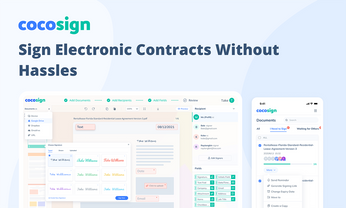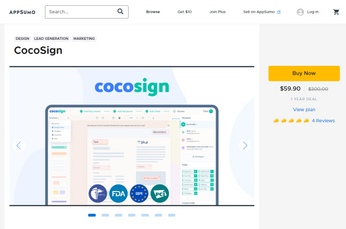
30 Interview Questions To Ask Employees
During interviews, Google was known for asking enigmatic questions. Employers created these puzzles to assess a candidate's cognitive abilities and observe how they think. "How many piano tuners are there in Chicago?" and "How much would a passenger's belongings be worth on a flight from London to Glasgow at 7.30 a.m. on Monday?" are examples of questions. Sounds fantastic, but all they managed to do was make the interviewer feel knowledgeable while making the interviewee feel silly. Although Google recognized this many years ago, employers appear to continue to utilize them.
A good interview question should attempt to persuade a candidate to open up to you and assist you in determining whether they are a good fit for the job. You should figure out if they have the necessary talents for the position, have the correct attitude for your organization, and fit in well with your team's culture. So, what are some good questions to ask? We've compiled a list of the top interview questions to ask your next employee.
1. What do you think about this organization?
This question is a great question to see whether the applicant has done their homework on your firm. Nowadays, learning about a firm is as easy as visiting their website and reading the contents available there.
This inquiry distinguishes between people who are simply looking for work and those who are genuinely interested in working for your firm. If they can't answer this question, it's a red flag that they aren't the ideal candidate for the job.
—— said Rahman, Founder & CEO at Oflox.
2. What about this employment piques your interest the most?
This question assesses if the candidate has done their homework and truly understands the position they are seeking—reflecting the depth of their interview preparation.
If the candidate has no idea what the work entails, they might not be a suitable fit. If they don't get this question right, make sure your job description is detailed enough to enlighten future applicants.
Give the candidate the benefit of the doubt and clarify the position's responsibilities if this is the case. You may then assess their reactions and replies to determine if they align with the candidate's desires.
——said Ben Chestnut, CEO&Co-founder at Mailchimp.
3. How did you find out about the opportunity?
This question isn't meant to put the applicant to the test, but it may help your firm determine how best to spend their advertising money. Your firm will spend thousands of dollars on advertising and agency costs; by collecting data, you can ensure that this money is spent wisely.
4. Can you tell me about a project you're proud of?
Ideally, an applicant should have at least one piece of work that they are proud of during their career. This question is an excellent technique to learn about a candidate's interests and abilities. If their achievement appears to be the result of a group effort, it's a good idea to go further and figure out what portion of the project they were responsible for and why they are pleased with it.
This question is an excellent open-ended question since it allows the candidate to demonstrate their most refined abilities and how they might apply to your company. Closed inquiries are best avoided at all costs since they make determining a candidate's personality extremely difficult.
5. What is the reason for your departure from your existing position?
This question is one of my favorites since it allows you to assess whether or not a candidate has to think creatively. For a variety of reasons, candidates leave jobs. They may be bored, overworked, underpaid, or dislike their supervisor in their current employment. If they're bored, figure out why so you don't have to worry about them being bored in this situation.
Their explanation for leaving shouldn't have as much of an impact on your opinion of them as to how they respond to this inquiry.
6. In 5 years, where do you see yourself?
Employee recruitment is costly. In an ideal world, you'd like your staff to stay with you for many years. There are additional aspects to consider at the corporate level to ensure a low turnover rate, but ensuring that your new worker intends to stay is a good start.
If they say things like "I want to work at Google" or "I want to run my own company," this employment is probably only a stepping stone for them, and they'll be seeking "better" opportunities in a year or so. You shouldn't be startled by the response since bright applicants will know this.
7. What are your strongest and weakest points?
People aren't particularly good at assessing themselves, so they will almost certainly be sugar-coated whatever responses you get to these questions. They do, however, assist in determining what the applicant considers to be their strengths and weaknesses.
It's safe to assume that their worst flaw will be framed as a strength. As a result, popular responses include "I'm such a perfectionist" and "I'm simply too organized." When a candidate answers honestly, it's incredibly refreshing. If the candidate has a genuine flaw, they should explain how they plan to address it.
8. What would you do if you had £50,000 to start a business?
Many people fantasize about one day beginning their own company. It is a great question to learn more about their interests and how they connect to the job. Because £50,000 is not a large sum of money, the applicant must consider maximizing the money's return.
9. What makes you the right person for the job?
If the previous inquiries aren't yielding results and you're still undecided about hiring this individual, ask them directly. Although some applicants may stammer when asked this question, their responses may provide you with the information you were looking for. Candidates must have answers to this question, although it may take a few minutes for others to come up with a response.
10. Is it preferable to be perfect and late, or to be decent and on time?
Your industry will most likely determine the answer to this inquiry. For example, in 5-star restaurants, each dish must be flawless before being served, even if it is a few minutes late. In most businesses, however, adequate is sufficient. The majority of things can be modified once they've been released.
If you work in a fast-paced startup, you'll almost surely choose excellent over flawless. Serious problems, on the other hand, might cost you money if you work in finance. In any case, the applicant should justify their desire to participate.
11. What do you enjoy doing in your spare time?
Although it is preferable to keep all of your interviews on the subject, asking more personal questions about the candidate's hobbies and activities might help warm them up. You can also use these questions to determine if the candidate is culturally compatible. If a large number of your team members like rock climbing or skiing and share similar hobbies, there's a reasonable probability they'll get along.
Apart from cultural fit, I wouldn't put too much stock in their responses. If a candidate enjoys reading, it does not imply that they are an introvert who cannot socialize.
12. Describe an instance when you made a mistake.
Everyone makes errors; it's one of the most critical aspects of human development. What is important is how you resolve the issue and prevent it from happening again. It's also significant how they respond to this query. Do they strive to absolve themselves of all blame and place the blame on someone else, or do they accept responsibility for their actions? When did they inform the supervisor of the issue, and did they come up with a solution on their own or someone else? Try to figure out how they handled the incident and manage it if it happens again.
13. What is one thing you could do every day of your life and be content with?
This question might help you figure out what your interests are. The ideal response to this question is "Lying on a beach all day" rather than "Working on a beach all day." Perfect if they are enthusiastic about something relevant to the position. Ensure you make every effort to find a way for their passion for fitting into your role. Suppose you believe this is an excellent candidate. In that case, it is your responsibility to persuade them to accept the position, just as it is their responsibility to convince you that they are a good match.
14. Could you describe something complex but something you are familiar with within five minutes?
Communication is essential in practically every profession. Communicating your thoughts and aiding others in understanding them is a crucial part of excellent communication.
The "something" need not be work-related; it might be anything from black holes to special relativity to the operation of a combustion engine. What you're searching for is someone who can explain things enough for you to grasp. If you learn something new, you will get bonus points.
15. Could you tell me about a moment when you triumphed against adversity?
In an interview, this is a standard question that most applicants will expect. Even if their response is scripted, learning how a candidate handles problems is still an intelligent question. Even if it's been practiced, asking further questions to learn more about how they solved the problem might give you a decent idea of their problem-solving skills. It might all fall apart in front of your eyes if they're lying.
16. What one quality distinguishes you as the best candidate for this job?
Every single person has a unique set of abilities. Discovering what this expertise is might help you determine how well they will fit into your team. Having candidates self-evaluate themselves may be a fantastic method to get them to think about a question rather than just responding with a canned response honestly.
17. How do you keep your professional knowledge and skills up to date?
While you as an employer must provide training tools, it is ultimately the person's responsibility to take ownership of their education. The most qualified applicants are always reading, learning, and honing their abilities. If the candidate claims that their present company does not provide training, inquire why they have not sought out training options on their own. Individuals must take charge of their education and development.
18. What does hard effort mean to you?
To different people, the hard effort might imply several things. If you like your work, you will never work a day in your life. Everyone wants their staff to put in long hours, but what does it entail? Is this going to entail putting in more time?
Most businesses expect their employees to be dedicated to their jobs and not leave at 5 p.m. unless the work is in a state where it may be abandoned. You may have a problem if they define hard work as a grueling workout they don't want to undertake that also happens to be a regular working day in their new employment.
19. Who is the most intelligent person you know?
This question will reveal what characteristics the candidate admires in others. There is no correct answer, but it can give you a sense of the attributes an applicant is likely to possess.
20. At your previous employment, what motivated you to get out of bed and come to work?
Too many candidates attempt to distance themselves from their previous employment and may believe they only have unpleasant recollections. If they've been in the job long enough, they must have loved it at some point. This question might help you figure out what kind of work the candidate enjoys and how that fits into the position. Having passionate and motivated individuals working for you is your best advantage at the end of the day.
21. Tell me anything about yourself that people would find surprising.
It might be challenging to gain a sense of a person's personality from a brief interview. It is where questions like this come in.
The candidate may be a great musician or a spectacular athlete in their spare time. The way they respond to this question might give you a sense of whether or not they'd be a suitable cultural fit for your company.
22. What would you like to do in your dream job, and why?
If you're still unsure if they'd like the job, ask them to describe their ideal day at work. Seeing if the candidate's goals align with the role you're recruiting for is a good predictor of whether or not they'll be able to stay on the job for a long time.
23. What has been the most difficult decision you've had to make in the past 12 months?
The goal of this inquiry is to see how they approach major decisions. Are they planners who conduct a thorough study before acting, or are they risk-takers who act on impulse? The candidate's response should, hopefully, be work-related. If they start sharing deep personal data, you might try to lead them properly.
24. Describe a moment when you established a challenging goal for yourself.
We're attempting to figure out whether the candidate sets objectives and if they've been able to reach them using this question. Attempt to get them to describe how they achieved their goals and their steps to accomplish them.
The candidate's response can decide whether or not the individual can consistently keep to their goals and whether or not they are likely to achieve their goals in the future. It would be a plus if the individual were able to establish and attain reasonable yet demanding goals. Setting wildly improbable ambitions may indicate that they are underestimating their skills.
25. How do you think your previous coworkers would describe you?
Another way to assess a person's personality is to ask them a question like this. We requested additional self-assessment questions in prior questions, but if that didn't work, we could put the candidate in the shoes of one of their coworkers.
This question is likely to be well-practiced, but it provides insight into the candidate's attitude about working with them. You'll probably get responses like "very organized," "on time," "very thorough," and so on. They're not going to tell you that they're a pain to deal with and that they never listen to other people's ideas. You may be surprised, though.
26. How would you spend your first 30 days, 60 days, or 90 days in this position?
Depending on the candidate's background, they should predict how they would adapt to a new environment. In most cases, settling into a new job takes a month. At the one-month point, you should expect replies about getting to know the surroundings, getting to know your coworkers, and being able to work with little to no help. You want recruits to start working right away. There might be a problem if candidates believe they can navigate the office after three months.
27. What is one ability you want to develop, and how will you achieve it?
No one is perfect; everyone has areas where they may grow. If they believe they are, call it a day. Candidates should be aware of their shortcomings and devise a strategy to overcome them. If the ability they want to enhance is one they'll need on the job, that's fantastic obviously, if their present level of expertise is sufficient to execute the task at hand. If Candidates demonstrate the willingness to learn and develop, they have the potential to become productive employees.
28. How would you characterize your approach to work?
You're looking for words like systematic, organized, and meticulous. However, how your firm works will have a significant impact. If you work for a fast-paced company, there may constantly be a sense of turmoil, and having an employee that thrives in that environment may be a fantastic benefit. Think about what you hope to get out of the position before you ask this question. Do you prefer a proactive or reactive employee?
29. Is there anything you would modify about the interviewing process?
It would help if you considered receiving input in every aspect of your business. Perhaps your interview process is too lengthy, and prospects are turning away. Your technical testing may be too simple or ineffective. Accept any comments and utilize them to improve your hiring process.
30. Are there any questions you'd want to ask me?
If they're interested in the position, your prospect should be able to ask at least one question. It is especially true for senior applicants, who you could anticipate having a list of questions. It's not uncommon for junior candidates to have no questions because they've likely already answered them all.
If I like a prospect and believe we'd be a good match, I'll usually tell them about other parts of the organization, such as corporate socials or benefits. If they haven't wowed you, this is a perfect moment to wrap up the interview and say your goodbyes.
Conclusion
Keep in mind that when interviewing that the applicant should be interviewing with you. By asking the right questions, you may obtain a clearer image of the candidate and decide whether or not to hire them. When you're on the opposite side of the table, keep this in mind. Interviews are one of the most stressful activities you can undertake. Candidates may need to be coaxed into providing you with the information you want.







